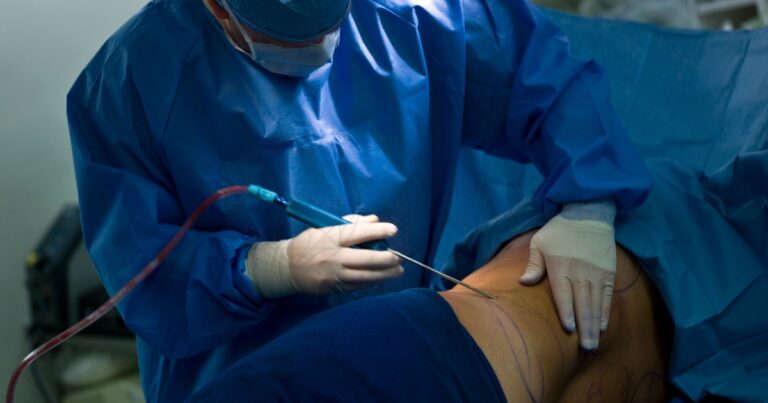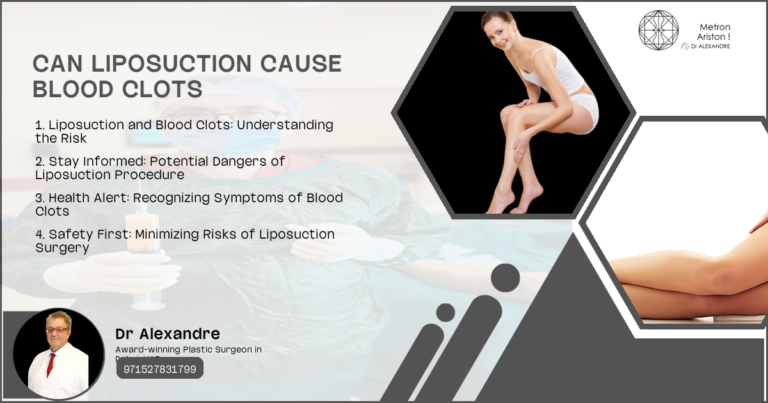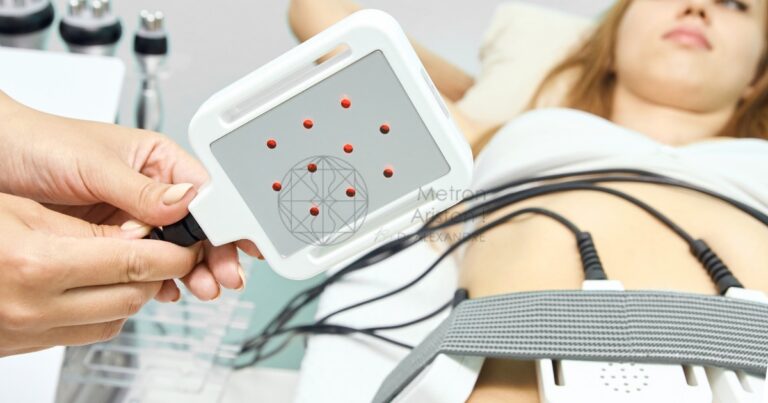Can Liposuction Make My Period Late? Understanding the Connection
Liposuction is a popular cosmetic procedure that can help reshape and contour the body by removing excess fat. However, many women wonder about its potential impact on their menstrual cycle. In this comprehensive guide, we’ll explore the relationship between liposuction and menstrual irregularities, addressing common concerns and providing valuable insights.
Can liposuction make my period late?
Liposuction can potentially affect your menstrual cycle, leading to temporary irregularities or delays. While not all women experience changes in their periods after the procedure, it’s essential to understand the factors that may contribute to menstrual disruptions.
Hormonal changes after liposuction
Liposuction can cause temporary hormonal fluctuations in the body. Fat tissue plays a role in hormone production, particularly estrogen. When a significant amount of fat is removed, it may temporarily disrupt the body’s hormonal balance, potentially affecting the menstrual cycle.
- Estrogen levels may decrease temporarily
- Hormonal imbalance can lead to irregular periods
- The body typically adjusts over time
Stress and its impact on menstrual cycles
The physical and emotional stress associated with undergoing liposuction can also affect your menstrual cycle. Stress hormones like cortisol can interfere with the normal functioning of reproductive hormones, potentially leading to delayed or missed periods.
- Surgical stress can disrupt hormone production
- Recovery period may cause emotional stress
- Stress-related menstrual changes are usually temporary
Body fat percentage and menstruation
A significant reduction in body fat percentage through liposuction may impact menstruation. Women need a certain amount of body fat to maintain regular menstrual cycles. If the procedure results in a dramatic decrease in body fat, it could potentially affect the regularity of periods.
- Minimum body fat percentage for menstruation: 17-22%
- Rapid fat loss may disrupt hormonal balance
- Gradual weight loss is generally less disruptive to menstrual cycles
|
Factor |
Potential Impact on Menstruation |
|
Hormonal Changes |
Temporary irregularities |
|
Stress |
Delayed or missed periods |
|
Body Fat Reduction |
Possible cycle disruption |
How does liposuction affect the menstrual cycle?
Understanding the specific ways liposuction can influence your menstrual cycle is crucial for managing expectations and identifying potential issues.
Temporary disruptions in hormone balance
Liposuction can cause short-term hormonal imbalances as the body adjusts to the changes in fat distribution. These fluctuations may lead to temporary menstrual irregularities, such as delayed periods or changes in flow.
- Estrogen levels may fluctuate post-surgery
- Progesterone production can be affected
- Hormonal balance typically stabilizes within a few months
Recovery time and menstrual irregularities
The recovery period after liposuction can impact your menstrual cycle. The body’s focus on healing and adjusting to the changes may temporarily disrupt normal hormonal patterns, potentially leading to delayed or irregular periods.
- Initial recovery typically lasts 1-2 weeks
- Full recovery can take several months
- Menstrual irregularities may persist during this time
Potential complications affecting periods
While rare, certain complications from liposuction could potentially impact menstruation. Infections, excessive inflammation, or other post-operative issues may stress the body and affect hormonal balance, leading to menstrual irregularities.
- Infections can cause systemic stress
- Inflammation may disrupt hormone production
- Severe complications could lead to prolonged menstrual changes
Is it normal to miss a period after liposuction?
Missing a period or experiencing irregularities after liposuction is not uncommon. However, it’s essential to understand what’s considered normal and when to seek medical attention.
Common post-operative symptoms
In addition to potential menstrual changes, you may experience other post-operative symptoms that are typical following liposuction.
- Swelling and bruising in treated areas
- Temporary numbness or changes in sensation
- Fatigue and mild discomfort
When to consult your doctor
While some menstrual irregularities are expected, it’s important to know when to seek medical advice. Dr. Alexandre recommends contacting your healthcare provider if:
- You miss more than two consecutive periods
- Experience heavy or prolonged bleeding
- Have severe abdominal pain or fever
Factors influencing menstrual regularity
Several factors can influence the regularity of your menstrual cycle after liposuction:
- The extent of fat removal
- Your overall health and pre-existing conditions
- Hormonal balance prior to surgery
- Stress levels during recovery
Can liposuction cause amenorrhea?
While rare, liposuction could potentially lead to amenorrhea in some cases. Understanding this condition and its relationship to the procedure is crucial for patients considering liposuction.
Defining amenorrhea
Amenorrhea is the absence of menstruation for three or more consecutive months in women of reproductive age who are not pregnant, breastfeeding, or menopausal.
- Primary amenorrhea: Never having had a period
- Secondary amenorrhea: Absence of periods after previously having regular cycles
Risk factors for post-liposuction amenorrhea
Certain factors may increase the risk of developing amenorrhea after liposuction:
- Excessive fat removal, especially in the abdominal area
- Very low body fat percentage post-procedure
- Pre-existing hormonal imbalances
- Severe stress or complications during recovery
Treatment options for missed periods
If you experience prolonged absence of periods after liposuction, Dr. Alexandre may recommend various treatment options:
- Hormonal therapy to regulate menstrual cycles
- Nutritional counseling to ensure proper body fat levels
- Stress management techniques
- Further medical evaluation to rule out other causes
How long can liposuction delay your period?
The duration of menstrual irregularities following liposuction can vary significantly among individuals. Understanding the typical timeline and factors influencing recovery can help manage expectations.
Typical duration of menstrual irregularities
Most women experience a return to normal menstrual cycles within a few months after liposuction. However, some may experience irregularities for a longer period.
- 1-3 months: Common duration for temporary irregularities
- 3-6 months: Extended period of adjustment for some women
- 6+ months: Prolonged irregularities may require medical evaluation
Individual variations in recovery
Recovery timelines can vary based on several factors:
- Amount of fat removed during the procedure
- Overall health and fitness level
- Age and hormonal status
- Stress levels and lifestyle factors
Monitoring your menstrual cycle post-surgery
Keeping track of your menstrual cycle after liposuction can help identify any persistent issues:
- Use a period tracking app or calendar
- Note any changes in flow, duration, or symptoms
- Report significant changes to Dr. Alexandre during follow-up appointments
Short-term hormonal fluctuations
Immediately following liposuction, you may experience:
- Decreased estrogen levels
- Potential changes in thyroid hormone production
- Temporary imbalance in cortisol levels
Long-term hormonal balance
For most patients, hormonal balance is restored within a few months:
- The body adapts to new fat distribution
- Remaining fat cells may increase hormone production
- Endocrine system adjusts to maintain homeostasis
Hormonal testing after liposuction
In some cases, Dr. Alexandre may recommend hormonal testing:
- To monitor estrogen levels
- To check thyroid function
- To assess overall hormonal balance during recovery
Fertility concerns after liposuction
Some patients may worry about:
- Hormonal imbalances affecting ovulation
- Changes in body fat affecting reproductive health
- Stress from surgery impacting fertility
Studies on liposuction and reproductive health
Research on the long-term effects of liposuction on fertility is limited:
- Most studies show no significant impact on fertility
- Temporary hormonal changes may affect menstrual regularity
- Further research is needed for comprehensive understanding
Consulting with a fertility specialist
If you’re planning to conceive after liposuction:
- Discuss your plans with Dr. Alexandre
- Consider consulting a fertility specialist
- Allow adequate time for recovery before trying to conceive
Recommended waiting period
Factors influencing the recommended waiting period include:
- Extent of the liposuction procedure
- Individual recovery progress
- Overall health and well-being
Risks of pregnancy immediately after liposuction
Attempting pregnancy too soon after liposuction may pose risks:
- Increased stress on the body during early recovery
- Potential hormonal imbalances affecting conception
- Complications with wound healing if pregnancy occurs very soon after surgery
Discussing family planning with Dr. Alexandre
Open communication with your surgeon is crucial:
- Inform Dr. Alexandre of your pregnancy plans before the procedure
- Discuss any concerns about fertility and pregnancy timing
- Follow post-operative instructions carefully to ensure optimal recovery
Managing menstrual irregularities post-liposuction
Taking proactive steps to manage menstrual irregularities after liposuction can help promote a smoother recovery and return to normal cycles.
Lifestyle adjustments for hormonal balance
Implementing certain lifestyle changes can support hormonal balance:
- Maintain a balanced diet rich in nutrients
- Engage in regular, moderate exercise
- Ensure adequate sleep and rest
- Practice stress-reduction techniques
Nutritional support for menstrual health
Proper nutrition plays a crucial role in menstrual regularity:
- Consume foods rich in iron to replace blood loss
- Include healthy fats for hormone production
- Ensure adequate vitamin D and calcium intake
- Stay hydrated to support overall health
Stress reduction techniques
Managing stress can help regulate menstrual cycles:
- Practice mindfulness or meditation
- Engage in yoga or gentle stretching
- Consider cognitive-behavioral therapy if needed
- Maintain a support network during recovery
When to seek medical attention for missed periods after liposuction
While some menstrual irregularities are expected after liposuction, certain symptoms warrant medical attention. Being aware of these signs can help ensure timely intervention if needed.
Red flags to watch for
Contact Dr. Alexandre or your healthcare provider if you experience:
- Absence of periods for more than three months
- Unusually heavy or prolonged bleeding
- Severe abdominal pain or cramping
- Fever or signs of infection
Follow-up appointments with Dr. Alexandre
Regular follow-up appointments are crucial for monitoring your recovery:
- Discuss any menstrual irregularities during these visits
- Report any concerning symptoms promptly
- Follow Dr. Alexandre’s recommendations for post-operative care
Diagnostic tests for menstrual irregularities
If menstrual problems persist, Dr. Alexandre may recommend:
- Hormonal blood tests to check levels of estrogen, progesterone, and other hormones
- Ultrasound to examine the uterus and ovaries
- Thyroid function tests to rule out thyroid-related issues
FAQ’s
How soon after liposuction can I get pregnant?
While liposuction doesn’t directly impact fertility, it’s generally recommended to wait before attempting to conceive. This waiting period allows your body to heal fully and hormonal levels to stabilize. Dr. Alexandre typically advises patients to wait at least 3-6 months after liposuction before trying to get pregnant. Liposuction leaves faint marks on the skin where small incisions are made to remove fat These tiny scars usually fade over time and become barely noticeable Lipo visceral ineffective means fat removal from inside the body does not work well It is not a good way to lose weight because it does not solve the real problem
Liposuction death possibility While rare Liposuction discomfort levels Patients may feel sore and achy for a few days after the procedure but most people say it’s not too bad and they can manage it with pain medicine
Can liposuction cause infertility?
Liposuction itself does not directly cause infertility. However, significant changes to body composition and potential hormonal fluctuations could temporarily affect fertility in some cases. It’s important to discuss any fertility concerns with Dr. Alexandre before undergoing the procedure.
Does liposuction affect hormones?
Liposuction can have temporary effects on hormone levels in the body. The procedure primarily targets fat cells, which play a role in hormone production, particularly estrogen. As a result, removing a significant amount of fat tissue can lead to short-term hormonal fluctuations. However, these changes are typically temporary, and the body usually adjusts over time.








